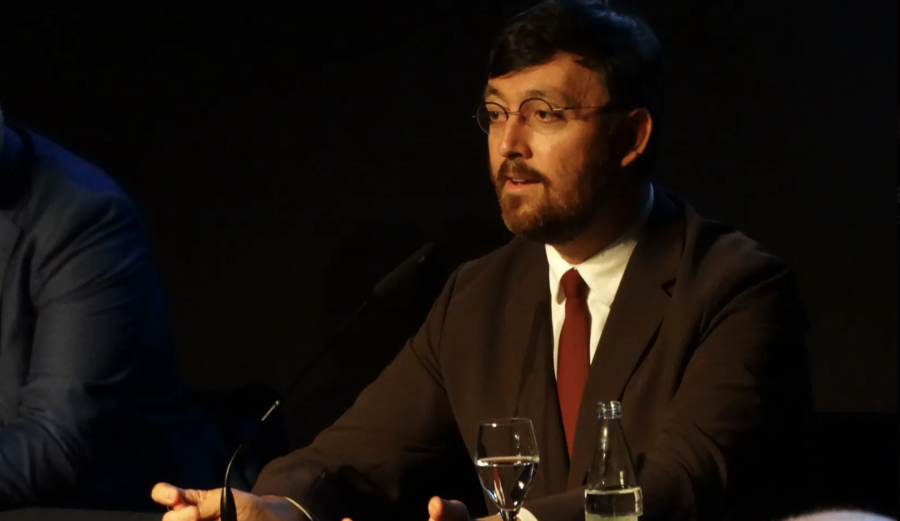Guest of Honor Interview : Gaëtan Bruel
For the first time, on Friday, October 17, 2025, the International Classic Film Market welcomed the president of the CNC within its walls: Gaëtan Bruel, president of the National Center for Cinema and the Moving Image (CNC), was honored in an exclusive interview with Florian Krieg, editor-in-chief of Le Film Français. A first for the final day of the 13th edition of the Market.

1. Education and cinema
- Gaëtan Bruel's love of cinema: Although the CNC president distinguishes between his personal love of cinema and his professional love of cinema, specifying that he does not mix the two when performing his duties, exercising strategic and tactical leadership with regard to the CNC's missions, he nevertheless defines his personal love of cinema as academic, as it has benefited greatly from the cinema and image education courses he took as a child, teenager, and young adult.
- Image education: Gaëtan Bruel says he is very committed to image education, which he considers essential for attracting audiences to theaters. This commitment takes the form of the CNC's “Ma classe au cinéma” (My Class at the Cinema) initiative.
2. The importance of heritage cinema in cinema
- A center of gravity: Considered the “heart of cinema” by Gaëtan Bruel, heritage cinema is, for him, the best way to discover the seventh art and develop a personal love of film.
- An asset for attendance: A vibrant sector and a high-quality industry, heritage cinema is less affected by declining theater attendance than new cinema. Figures show that 90% of French people watch heritage films and more than a third of the works screened in theaters are classic films. In terms of video on demand, heritage films account for more than 45% of the cinema offering and more than 22% of consumption. They also account for a third of broadcasts on free-to-air channels.
- Still to be discovered: More than half of the films released between 1985 and 2004 are available to view, but a large proportion remain unseen and are still to be discovered, particularly in theaters. Digital technology offers opportunities for this, such as the Letterboxd platform.
- It still needs to be strengthened: Although communication around classic cinema has never been so important (e.g., Letterboxd), it is struggling to gain a foothold in traditional media, particularly television.
3. The CNC's next challenges
- Creation of a cinema museum: The CNC wishes to support Rachida Dati's desire to create a national cinema museum by reviving Henri Langlois' collections, which were saved from the 1997 fire at the Palais de Chaillot.
- Strengthening support for film libraries: The CNC intends to continue its work in supporting film libraries, in particular by permanently increasing its budget for digitization from €2.6 million to €3.6 million.
- Supporting the preservation of classic cinema: The CNC cannot take responsibility for all preservation, which is the responsibility of the rights holders, but it is becoming mandatory to integrate the economic cost of preserving works into valuation models. A consultation on the subject will therefore be organized.
- Creating an audiovisual heritage: In response to Michel Gomez's report and its conclusions, presented in preview at the Market on Wednesday, October 15, 2025, Gaëtan Bruel announced that a budget will be dedicated next year to the creation of an audiovisual heritage and the harmonization of policies with those of heritage cinema. Initial projects will then be launched, without changing the budget allocated to traditional cinema. The focus will be on works from 1980 to 2005.




